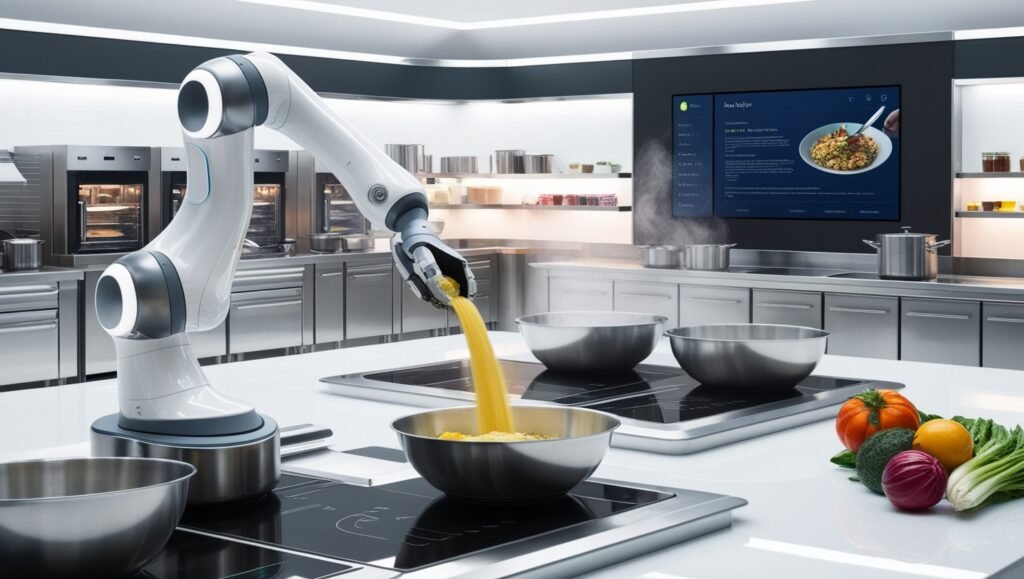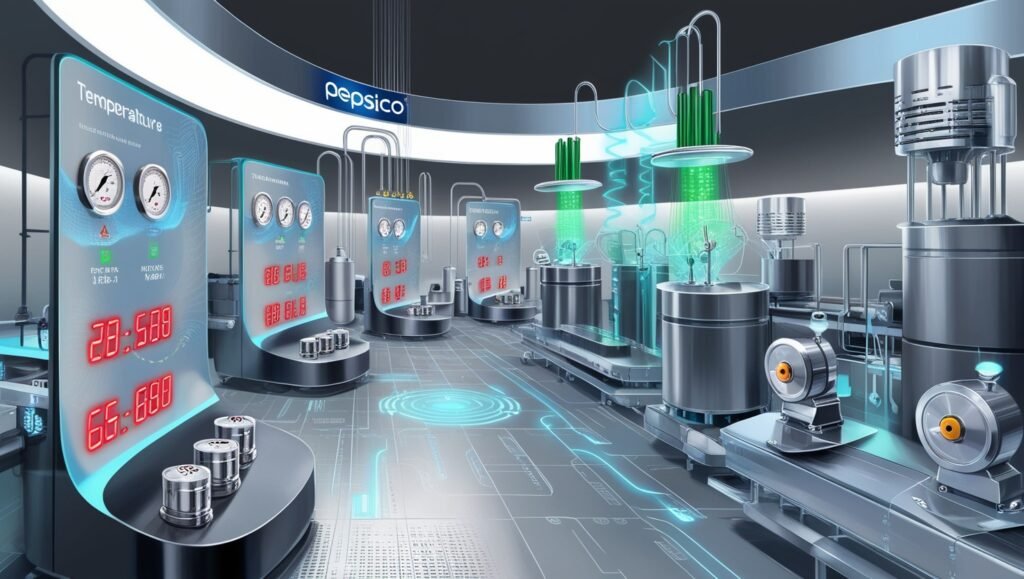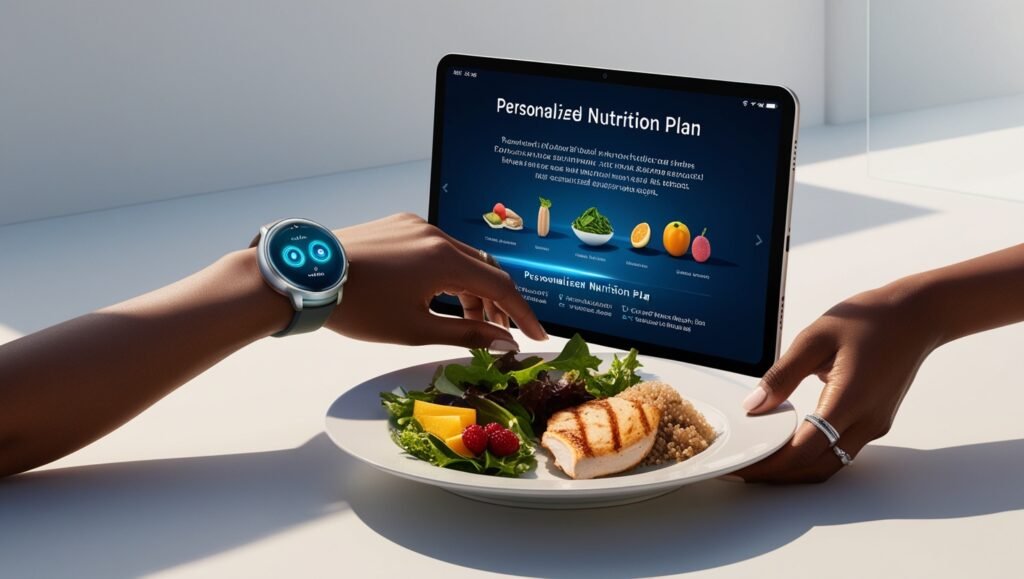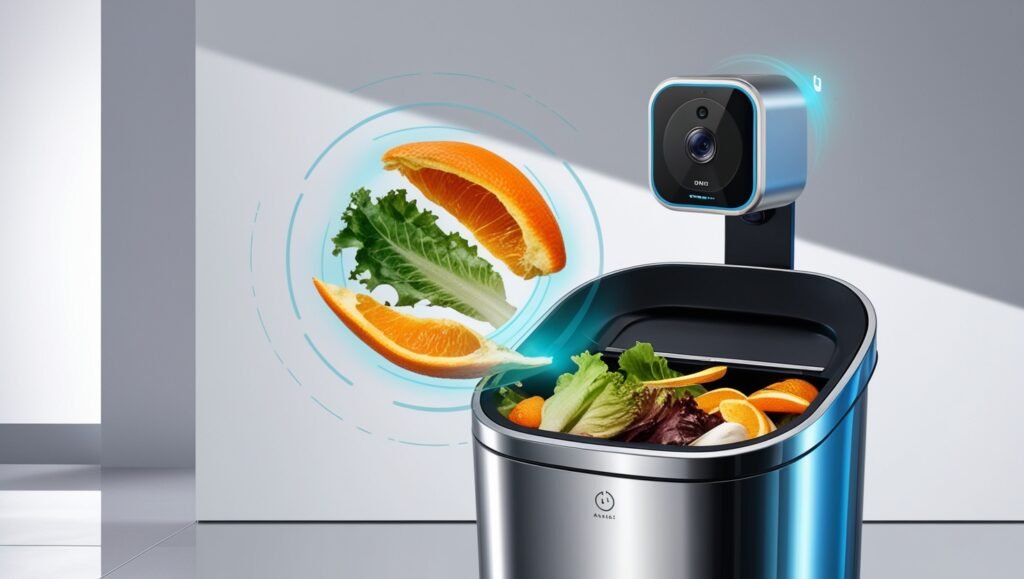
Table of Contents
- Quality Control with AI Vision Systems: TOMRA Food’s Success Story
- PepsiCo’s Predictive Maintenance Solution: A Model of Efficiency
- Personalized Nutrition: How Nestlé’s AI Offers Custom Diet Plans
- Food Waste Reduction with Winnow’s AI in Commercial Kitchens
- AI in Supply Chain Optimization: Carrefour’s Demand Forecasting
- Expert Insights: AI’s Future in the Food Industry
- Conclusion: The Transformative Power of AI in the Food Industry
The food industry is one of the most complex and essential sectors globally, tasked with feeding a growing population while navigating economic, environmental, and health challenges. In recent years, artificial intelligence (AI) has emerged as a game-changer, offering solutions to optimize production, reduce waste, improve quality, and enable personalized nutrition.
This blog takes a detailed look at how companies are leveraging AI to meet these challenges, using real-world case studies to show AI’s impact on food quality control, predictive maintenance, supply chain efficiency, personalized nutrition, and food waste reduction.
Quality Control with AI Vision Systems: TOMRA Food’s Success Story

In the food industry, ensuring the quality and consistency of products is crucial. Traditionally, companies have relied on human inspection, which, while effective, is often labor-intensive and prone to error. Enter TOMRA Food, a leading player in food sorting and quality control, which has integrated AI-powered vision systems to transform quality assurance in the production process.
How TOMRA’s AI Vision System Works
TOMRA Food’s system uses machine learning algorithms combined with optical sensors to visually inspect food items as they pass along the production line. The AI model has been trained to recognize visual cues associated with quality, such as color, texture, shape, and size. Any food item that doesn’t meet quality standards – be it due to discoloration, bruising, or an unusual shape – is identified and sorted out, all in real time.
The system also collects data on each rejected item, continuously feeding it back to the AI algorithm. This feedback loop allows TOMRA’s system to improve its accuracy over time, adapting to seasonal variations and different types of produce.
The Impact on TOMRA’s Operations
The adoption of this AI-driven vision system has dramatically reduced the need for manual sorting, allowing TOMRA to process higher volumes with less labor. According to company sources, these systems achieve an accuracy rate of up to 95%, significantly minimizing human error. By automating quality control, TOMRA has not only improved efficiency but also cut down on waste, as the system can sort products with minor defects into separate streams for processing into alternative products, like purees or juices.
In TOMRA’s words, “AI has revolutionized our ability to maintain quality control at scale, ensuring that only the best products reach consumers, while still finding ways to utilize products that don’t make the first cut.”
PepsiCo’s Predictive Maintenance Solution: A Model of Efficiency

In fast-paced manufacturing environments, unexpected machine breakdowns can lead to costly downtime and product loss. To address this, PepsiCo has implemented predictive maintenance across its bottling plants, enabling proactive rather than reactive maintenance to optimize production uptime.
How PepsiCo’s Predictive Maintenance AI Works
PepsiCo’s system employs IoT sensors installed on machinery throughout its production lines. These sensors monitor various parameters, such as temperature, vibration, sound, and motor speed. The data is continuously fed into an AI model that has been trained to recognize signs of wear or impending failure.
For instance, a subtle increase in vibration might signal that a motor bearing is nearing the end of its life. Rather than waiting for it to fail, PepsiCo’s maintenance team receives an alert to replace the part before any breakdown occurs. The AI model refines its predictions with every new piece of data, improving its accuracy over time.
The Impact on PepsiCo’s Operations
Since adopting AI-driven predictive maintenance, PepsiCo has reported a 30% reduction in unscheduled downtime, translating to millions of dollars in savings annually. Maintenance costs have also dropped by 15%, as resources are now focused on components that genuinely need attention, reducing wasteful inspections and emergency repairs.
In the words of Alex Rodriguez, PepsiCo’s Director of Maintenance, “Predictive maintenance allows us to focus on the parts of our machinery that need the most attention, maximizing production efficiency and minimizing costs.”
Personalized Nutrition: How Nestlé’s AI Offers Custom Diet Plans

As consumers become increasingly health-conscious, the demand for personalized nutrition has grown. Nestlé, one of the world’s largest food companies, has embraced AI to create tailored diet plans for consumers based on their individual dietary needs, health data, and preferences.
How Nestlé’s AI-Driven Personalized Nutrition Works
Nestlé’s “Wellness Ambassador” app, launched in Japan, collects data from consumers through dietary surveys, wearable devices, and lifestyle questionnaires. The AI then uses this data to suggest personalized nutrition plans and product recommendations that align with the individual’s health goals.
For example, if a user’s wearable data shows high levels of physical activity, the AI might suggest a protein-rich meal plan to support muscle recovery. Users receive customized meal and supplement recommendations, along with insights into how their diet can support their health objectives.
Consumer Engagement and Health Impact
The personalized approach has allowed Nestlé to engage consumers more deeply, building loyalty by addressing individual needs. Nestlé’s CEO, Mark Schneider, emphasized the importance of personalization: “AI in personalized nutrition is about understanding individual needs and providing tailored solutions that improve consumer well-being.” The Wellness Ambassador app has gained popularity, and Nestlé plans to expand similar solutions globally.
This case illustrates how AI-driven personalization is not only meeting consumer demand but also giving Nestlé a competitive edge by fostering stronger customer relationships.
Food Waste Reduction with Winnow’s AI in Commercial Kitchens

Food waste is a major issue for the food industry. Winnow, a UK-based tech company, addresses this with AI-driven solutions that track and reduce food waste in commercial kitchens. This approach has seen significant adoption in hotel chains and restaurant groups aiming to operate more sustainably.
How Winnow’s Food Waste Tracking AI Works
Winnow’s AI-powered system uses a smart camera installed above the waste bin to capture images of discarded food. The AI identifies the type of food, calculates the amount, and provides data on what’s being wasted and why. Chefs receive real-time feedback on waste patterns, allowing them to adjust portion sizes, menu items, or inventory orders to reduce waste.
For instance, if the system detects a high volume of vegetable trimmings being discarded, chefs can investigate whether more efficient cutting techniques or purchasing pre-cut vegetables could save resources.
Sustainability and Cost Benefits
Winnow’s clients, which include Hilton and Marriott, have reduced food waste by up to 50%, translating into millions of dollars in annual savings. By providing data on waste patterns, Winnow helps clients make data-driven decisions, benefiting both their bottom line and the environment.
Marc Zornes, Winnow’s CEO, highlights the significance: “AI has enabled us to provide chefs with the tools they need to prevent waste before it happens, resulting in a more sustainable kitchen environment.” Winnow’s work showcases how AI can promote sustainability, reduce costs, and support the hospitality industry’s environmental commitments.
AI in Supply Chain Optimization: Carrefour’s Demand Forecasting

Retailers face constant challenges with supply chain management, especially balancing supply and demand to avoid both overstocking and stockouts. Carrefour, a leading multinational retailer, has tackled this with an AI-powered demand forecasting system.
How Carrefour’s AI Demand Forecasting Works
Carrefour’s system analyzes diverse data inputs, including seasonal trends, local events, weather forecasts, and economic conditions. The AI model uses this data to generate demand forecasts for different products, helping Carrefour optimize stock levels across stores.
For instance, the AI might predict increased demand for cold beverages during an upcoming heatwave, prompting Carrefour to increase stock at relevant locations. This approach prevents missed sales opportunities due to stockouts, while minimizing waste by avoiding overstocking.
Impact on Waste and Customer Satisfaction
With AI-driven demand forecasting, Carrefour has reduced stockouts by 20% and perishable food waste by 10%. Benoît Soury, Carrefour’s Executive Director of Food Transition, notes, “AI allows us to anticipate demand with unprecedented accuracy, minimizing waste and maximizing customer satisfaction.” This case demonstrates how AI can streamline supply chain efficiency, benefiting profitability and reducing environmental impact.
Expert Insights: AI’s Future in the Food Industry
Experts agree that AI’s role in the food industry will continue to grow. Dr. Susan Duncan, Professor of Food Science and Technology, highlights that “AI has unlocked unprecedented efficiencies, from optimizing crop yields to transforming quality control,” and its versatility allows it to address challenges across every stage of the food value chain.
Dr. Arun Sundararajan, Professor of AI and Economics, emphasizes that “AI’s data processing capabilities enable companies to adopt more sustainable practices, helping the food industry grapple with resource scarcity and climate change.”
Conclusion: The Transformative Power of AI in the Food Industry
The adoption of AI across the food industry is transforming operations, enabling companies to deliver higher quality, reduce costs, and engage consumers in meaningful ways. From TOMRA’s automated quality control that minimizes waste to PepsiCo’s predictive maintenance that prevents costly downtimes, AI solutions are enhancing efficiency and consistency across the production process. AI-powered personalized nutrition, like Nestlé’s Wellness Ambassador, connects with consumers on a personal level, addressing their unique dietary needs and promoting customer loyalty. Meanwhile, Winnow’s waste-reducing AI in commercial kitchens and Carrefour’s demand forecasting model exemplify how AI is supporting sustainability and resource optimization, crucial for an industry with significant environmental impact.
The future of AI in the food industry is poised to bring even greater innovation. Experts see AI as essential for meeting complex consumer demands, reducing environmental footprint, and addressing resource constraints. As AI evolves, it will continue reshaping the food supply chain, enhancing precision in everything from crop yields to demand forecasting. This technological transformation holds the promise of a more efficient, sustainable, and personalized food industry that can adapt to global challenges. The food sector is poised not only to operate more responsively and sustainably but also to meet the demands of a growing world population, making the future of food production, distribution, and consumption both dynamic and promising.
